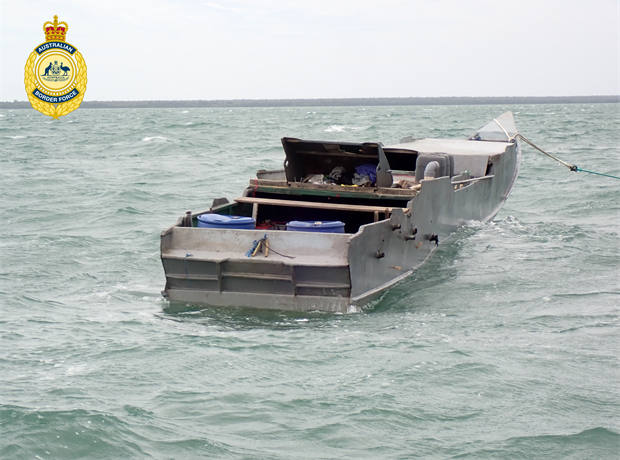Indonesian Nationals Plead Guilty to Illegal Fishing in Australian Waters
On July 8, 2025, nineteen Indonesian nationals appeared in Darwin Local Court and pleaded guilty to illegally fishing in Australian waters. The incidents occurred in three separate cases, where Australian authorities intercepted Indonesian vessels engaged in illegal fishing activities.
The first incident took place on June 22, 2025, in the Cobourg Marine Park, Northern Territory, where an Indonesian vessel was apprehended. Two additional vessels were intercepted on June 25, 2025, near Maningrida, Northern Territory. In all cases, the crews were detained, and the Australian Border Force (ABF) seized the vessels, which were subsequently destroyed at sea in compliance with Australian law.
During the operations, authorities confiscated 130 kg of sea cucumber, 390 kg of salt used for processing and preserving catch, as well as navigational aids and various fishing equipment. All nineteen fishers were charged with offences under the Fisheries Management Act 1991 (Cth).
The masters of the three vessels received fines of A$6,000 ($3,925) each, while fifteen crew members were fined A$3,500 each. One crew member, who had a previous conviction for similar offences, was fined A$4,000. The fines are required to be paid within 28 days, with potential imprisonment for defaulters. Additionally, all fishers will be deported by the ABF and returned to Indonesia at the earliest opportunity.
Australian authorities collaborate with the Indonesian Government to combat illegal fishing at its source. This includes public information campaigns in Indonesian fishing communities, distribution of educational materials, targeted social media campaigns, and proactive engagement with fishers to raise awareness about the consequences of illegal fishing.
Illegal fishing poses a threat to marine ecosystems and undermines efforts to sustainably manage fisheries. By enforcing laws and collaborating with international partners, Australia aims to protect its waters and preserve marine biodiversity for future generations.

